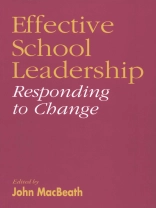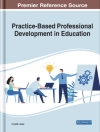`This is a zippy read arising out of the international project ‘effective leadership in a time of change’, which grapples with the nature and practice of leadership (as opposed to management or administration) in schools′ – Times Educational Supplement
Who really runs the school – head teachers or governors? What do pupils think of their leaders and should they have a bigger role in school leadership? Is the United Kingdom obsessed with discipline and `strong leadership′ as others suggest? Is New Public Management an insidious undermining of what is important and valuable in the UK educational system?
The answers to these and other questions present surprises and challenges to the way things are seen in the UK. This book provides evidence from other countries that raises many questions about effective leadership and how it is seen from different viewpoints, and examines the issues in a political context and in relation to a changing world scene.
สารบัญ
Introduction – Chresten Kruchov, John Mac Beath and Kathryn Riley
Seven Selected Heresies of Leadership – John Mac Beath
Time For a Change – John Mac Beath, Leif Moos and Kathryn Riley
The School Leader′s View – Jenny Reeves, Leif Moos and Joan Forrest
What Teachers, Parents, Governors and Pupils Want from Their Heads – Leif Moos, Pat Mahony and Jenny Reeves
Expectations of School Leaders – Neil Dempster and Lloyd Logan
An Australian Picture
Some Comparative Learnings from the Study – Leif Moos and Neil Dempster
Who Really Runs the School? – Pat Mahony, John Mac Beath and Leif Moos
Ethical Challenges in School Leadership – Neil Dempster and Pat Mahony
Effective Leaders and Effective Schools – Kathryn Riley and John Mac Beath
Developing Effective School Leaders – Jenny Reeves and Neil Dempster
Postscript – Angus Mac Donald
เกี่ยวกับผู้แต่ง
John Mac Beath is Professor Emeritus at the University of Cambridge, Director of Leadership for Learning: the Cambridge Network and Projects Director for the Centre for Commonwealth Education. Until 2000 he was Director of the Quality in Education Centre at the University of Strathclyde in Glasgow. As well as his interest and research on leadership he has, for the last decade, worked with schools, education authorities and national governments on school self-evaluation. Five books on self-evaluation have been addressed mainly to a teacher and senior management readership. These include Schools Must Speak for Themselves, Self-Evaluation in European Schools, Self-evaluation: what′s in it for schools? Self-evaluation in the Global Classroom and School Inspection and Self evaluation – all published by Routledge and now in twelve European languages. All of these books derive from collaboration with schools, with teachers and school students, the Global Classroom book being written mainly by school students from eight different countries. Issues in School Improvement, a CD-rom resource for schools in Hong Kong, contains many of these self-evaluation tools in both English and Chinese while a recent addition to self evaluation and inspection Hong Kong is an interactive website illustrating good practice in Hong Kong special, primary and secondary schools.
He has acted in a consultancy role to the Organisation for Economic Co-operation and Development (OECD), UNESCO and ILO (International Labour Organisation), the Bertelsmann Foundation, the Prince′s Trust, the European Commission, the Scottish Executive, the Swiss Federal Government, the Varkey Group in Dubai (Emirates) and the Hong Kong Education Department. He was a member of the Government Task Force on Standards from 1997-2001 and was awarded the OBE for services to education in 1997












